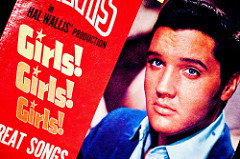*If you’re the tallest, the smallest …
For a child growing up in Britain in the 1970s the Christmas edition of Record Breakers was a sign that the holiday was really underway. This children’s TV programme, presented by the multi-talented Roy Castle, met the BBC’s remit to educate and entertain by presenting the facts and figures associated with world records, as well as showing live attempts at creating new records. There might even be a chance for audience participation: “What’s the longest anybody can hold their breath?”
The largest Christmas cake ever baked? The most expensive perfume gift you could buy? The best-selling Christmas song of all time? Keep watching, and you’d find out. As the 1970s progressed, the format started to include an all-star Christmas panto, a rare chance to see your favourite TV personalities singing and dancing and often looking out of their depth. (Though not in a world-record-breaking way.)
The programme also featured the McWhirter twins, who compiled the Guinness Book of Records. In this pre-search-engine age, children from the audience could test the McWhirters’ comprehensive knowledge of all the record-breaking statistics. (According to Who’s who online, Ross McWhirter read law at Trinity College, Oxford, studying there alongside his brother Norris who became an expert in contract law. A legal education really can take you anywhere.)
The idea for the Guinness book of records sprang from an argument at a shooting party about which game bird was the fastest. The director of the Guinness Brewery couldn’t find an authoritative source to settle the argument, and came up with the idea of compiling a new reference work. This grew to become an annual bestseller, now under the title Guinness world records. Taking at random the 2012 edition, I checked the section on Crime & Punishment, hoping to find the answer to legal questions such as the longest-running civil court case or maybe which council in the UK paid out the most to pedestrians who tripped on their pavements. Instead we find categories such as Worst Kleptocrat and Highest Ransom Paid for a Ship.
At the Law Library, authoritative sources are our thing. As well as standard legal resources (try KZ for Halsbury’s laws of England or follow our guide for using it online ) did you know we also have more general reference materials? If you need to look up a medical term, or translate a word from Welsh into English, or find an apposite quote for a speech, come to our Ref section.
For a quick question you could try SOLO Live Help. For more in-depth queries you can Ask an Oxford Librarian, the closest thing we have to the McWhirter twins.
For those of you playing at home, answers include:
- According to the 1972 show, the most expensive perfume on sale was a huge bottle of Chanel No. 5.
- Bestselling Christmas song: in 1972, as now, White Christmas. Some things never change.
- I don’t know which is the biggest Christmas cake ever baked. I should book a research session with a librarian.
- Worst kleptocrat according to 2012 edition of Guinness world records: President Suharto of Indonesia.
- Highest ransom paid for a ship according to the 2012 edition: £5.8 million to release the tanker Samho Dream.
* [“If you’re the tallest, the smallest… ” are the first words from the Record Breakers opening theme, performed by Roy Castle. I’ve been unable to verify the writer of the lyrics; there is an unconfirmed suggestion it was written by Roy Castle himself. Please let us know if you have any information about the correct attribution.]







![By Paramount Pictures (corporate author) [Public domain], via Wikimedia Commons](http://blogs.bodleian.ox.ac.uk/lawbod/wp-content/uploads/sites/142/2016/12/Girls_Girls_Girls_Poster_B.jpg)



 The price is usually 25 Euros plus tax (about £25 total, a huge reduction from the usual print prices). To do this, you will need to create a personal account, which also allows you to mark your favourites, see your search history, and set up publication alerts.
The price is usually 25 Euros plus tax (about £25 total, a huge reduction from the usual print prices). To do this, you will need to create a personal account, which also allows you to mark your favourites, see your search history, and set up publication alerts.

